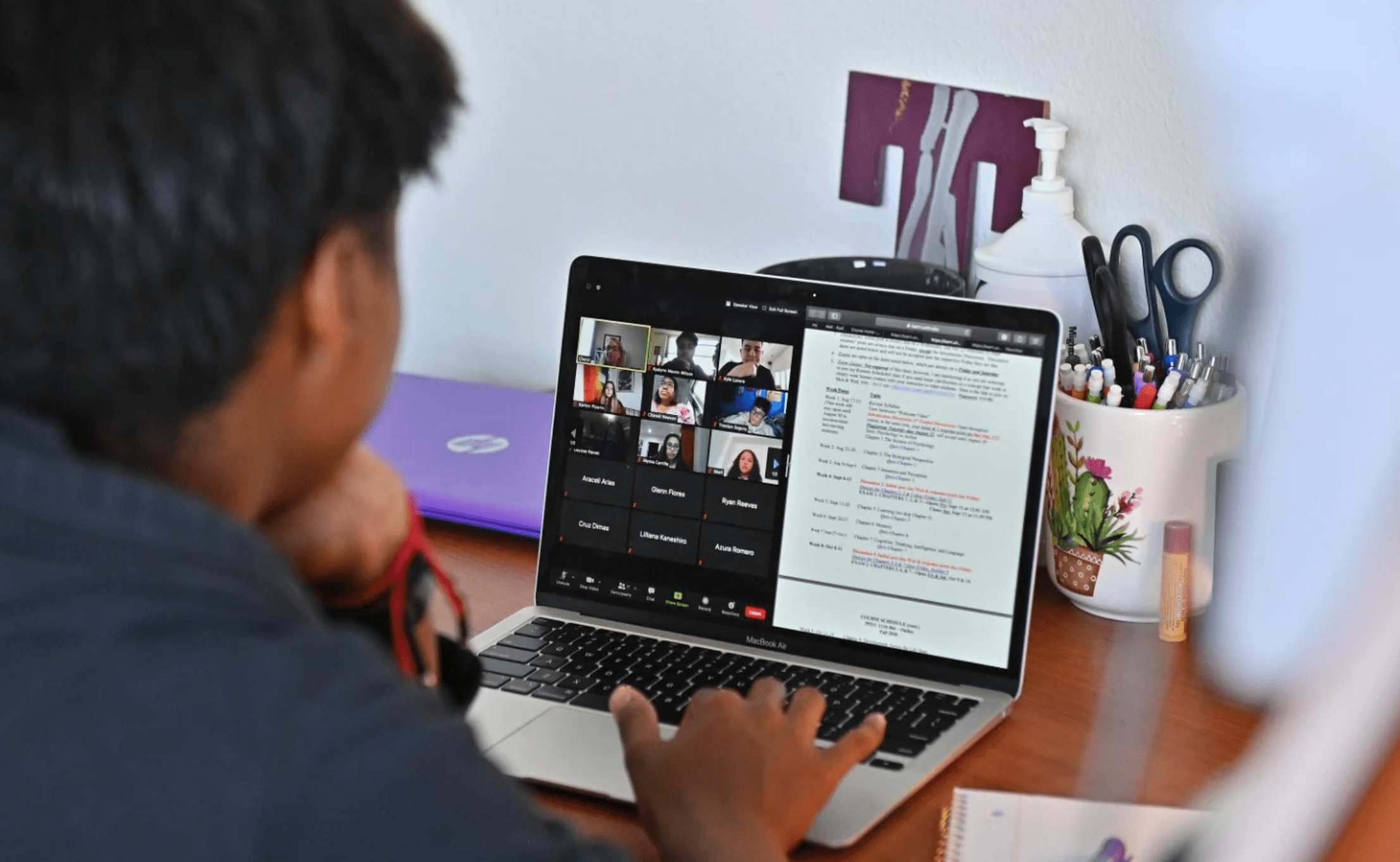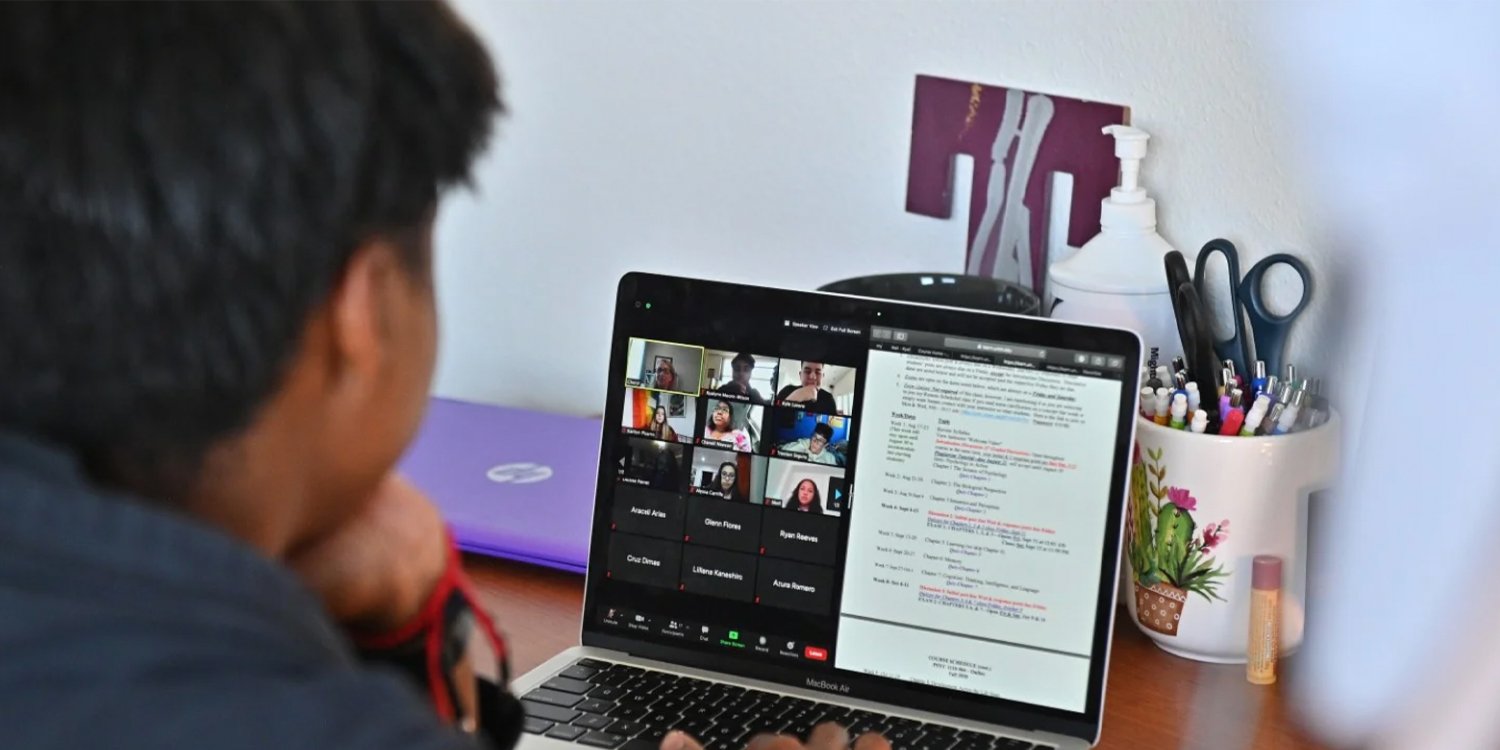Teacher Says Children Growing Up In Digital Age Are Different, Stresses Importance Of Media Literacy
Children these days grow up becoming well-immersed in Internet culture, one that exposes them to a broader worldview at a much younger age than the generations before them.
On Monday (21 Feb), Singaporean teacher Matthew Zachary Liu took to Facebook to share the reality of children in the digital generation.
He recalled that when he was conducting a home-based learning (HBL) session, a primary 5 student spammed ’69’ in the chat. The teacher called him out and taught him to reflect on his actions.
In his lengthy post, Mr Liu stressed the importance of media literacy and sex education in schools for the digital generation. We summarise his post after the jump.
Children in this generation are exposed to more
Mr Liu shared that the reality of students these days may shock many, even parents and schools.
To illustrate his point, he shared that “10-year-olds are swearing. 12-year-olds are surfing porn. 14-year-olds are sexually active. 16-year-olds are broken. 18-year-olds are committing crimes”.
Mr Liu said this is the digital generation that has grown up with devices in their hands.
This often means they’re “smarter” but a lot more exposed to everything on the Internet.
Their everyday life consists of TikTok trends, interacting on Discord, and watching streamers gaming. This may also include surfing sexualised content and using vulgarities, turning a supposedly wholesome experience toxic.
Some even have multiple accounts for stalking, gaming, or sending anonymous hate to others.
Students often do this thinking nobody can trace them, and there are no consequences to their actions.
Parents try to restrict screen times to combat this, but the teacher pointed out that kids are smart. They know how to bypass these restrictions and hide things.
P5 boy spams ’69’ as answer during HBL
Mr Liu recounted that during one HBL session he was conducting with a Primary 5 class, one boy repeatedly typed ’69’ as an answer.
 Image used for illustration purposes only
Image used for illustration purposes only
Source
This led to pandemonium in the chatbox. The teacher called him out, asking him why his answer was 69.
Initially, the student burst out laughing. However, Mr Liu remained adamant about asking him to explain himself, and the student hesitated.
Another student then typed that it was ‘a sex number’.
The boy did not know how to explain ’69’ upon further questioning from the teacher and said he didn’t feel good.
The teacher wanted students to know that everyone has to take accountability for their words and actions – even if it is online – and be ready for the consequences.
The boy later sent him a direct message apologising.
Drawing from the incident, Mr Liu said when kids are conscious and reflect on their actions instead of shutting down, it’s a start.
He explained that this was why he chose to address such issues head-on, even though it was not part of the lesson plan.
Teacher says media literacy needs to be taught
Media literacy, sex education, mental well-being, and emotional control—the teacher stressed that these are important issues to address.
Beyond academics, he believed that students need to be equipped with this knowledge and have facilitated conversations to help them explore their sexuality and relationships.
However, Mr Liu said parents and schools often sweep these things aside.
Returning to his initial point, the teacher stressed that this generation is different. Growing up with the Internet, they might have more exposure and have to deal with a lot internally.
While these conversations are not easy to have, it is important. After all, devices aren’t necessarily the problem; a lack of communication is.
Ultimately, Mr Liu emphasised that kids need to feel loved and understood—only then can they learn and eventually find themselves.
Important topics to be covered for the digital generation
These days, our lives are increasingly intertwined with the Internet and technology. Growing up in the digital era affects children in ways we have not yet fully understood.
As students’ lives get increasingly complex, so do the jobs of all parents, teachers, and schools.
Kudos to this teacher for raising such pertinent issues of today. Hopefully, topics such as media literacy can soon be incorporated into Singapore’s education to better ensure children are not getting all their ‘education’ from the Internet.
Have news you must share? Get in touch with us via email at news@mustsharenews.com.
Featured image adapted from The Hill. Image used for illustration purposes only.

Drop us your email so you won't miss the latest news.











